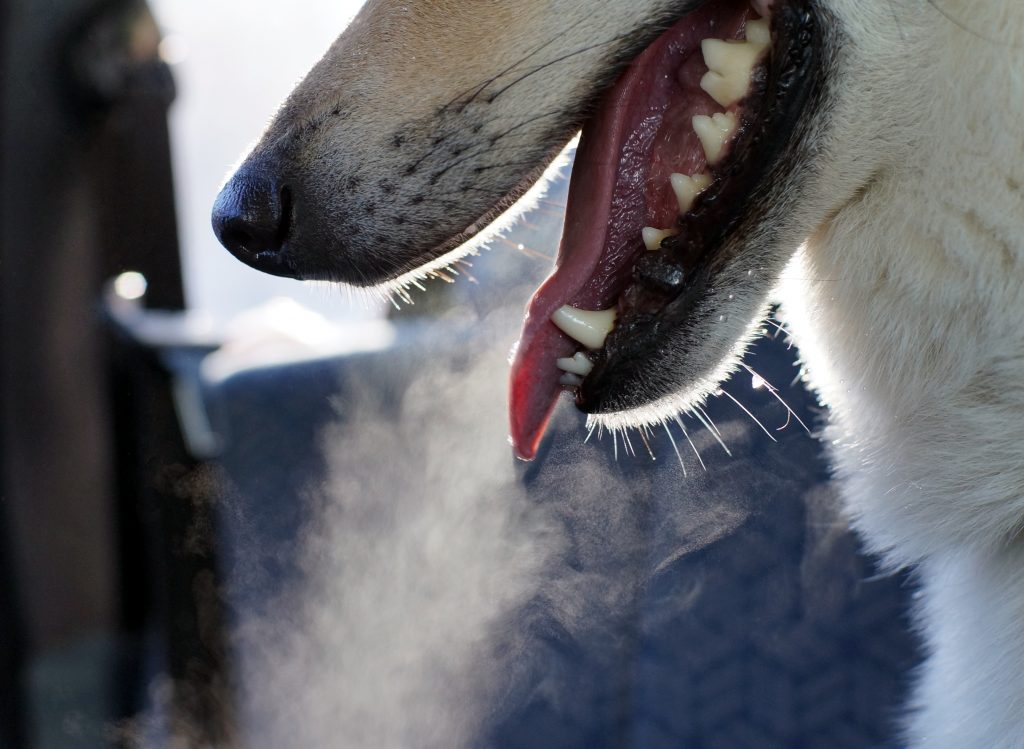Dog Bad Breath and Dental Disease

You may enjoy your dog’s affectionate kisses when you get home—until bad breath makes them less pleasant. But is it normal for a dog’s breath to smell bad? Answer is no.
Bad dog breath can be a sign of various health issues. Identifying the cause is the first step in treating both the odor and the underlying condition.
What Causes Dog Bad Breath?
Dental or gum disease is the most common causes of bad breath in dogs. Plaque and tartar buildup can cause gingivitis and periodontal disease, leading to bad breath. If left untreated, dental issues may progress to tooth loss and serious infections.
Oral Infections
Bacterial infections in the mouth can cause bad breath. These infections may result from injuries, lodged foreign objects, or underlying dental issues.
Besides bad breath, its wise to bring your pet in for a checkup if you notice:
- Change in eating habits
- Pain when touching the mouth
- Obvious tartar buildup
- Red or swollen gums
- Bleeding or loose teeth
- Drooling
- Swelling of the muzzle
Preventing Dog Bad Breath & Dental Disease
Regular dental care is vital in preventing and slowing progression of dental disease in our pets. Here are some effective solutions:
Annual Dental Exams
The first step in treating your dog’s bad breath is to schedule a dental exam. During the dental exam, your veterinarian will assess your pet’s oral health and determine their dental needs. If advanced care is necessary, your vet will recommend the appropriate treatments.
Regular Brushing
Brushing your dog’s teeth daily or at least several times a week with canine-specific toothpaste and a toothbrush is one of the most effective ways to prevent plaque buildup. Many dog toothpastes come in appealing flavors to make the process more enjoyable for your pet.
Dental Treats & Chews
Dental treats can help remove plaque as your dog chews, or they may contain ingredients that support a healthy oral environment. Additionally, dental water additives are another option to improve oral health and freshen your pet’s breath. These additives are usually unflavored and can be easily added to your dog’s water dish each day.
Dental Diets
Dental diets designed for dogs can help reduce plaque buildup. These diets feature larger kibble sizes and a coarse texture that helps scrape plaque off the teeth as your dog chews. Veterinary Oral Health Council’s list of products is a great resource in finding veterinary recommended tooth brushes, wipes, food and treats.
Our Role in Dental Health for Pets
Preventive pet dental care is very important, and Lone Tree Veterinary Medical Center wants you to understand how routine dental examinations, home dental care, and professional dental cleanings play into your pet’s overall well-being.
Give us a call today. It’s always a good time to give your pet’s oral health a fresh start!



